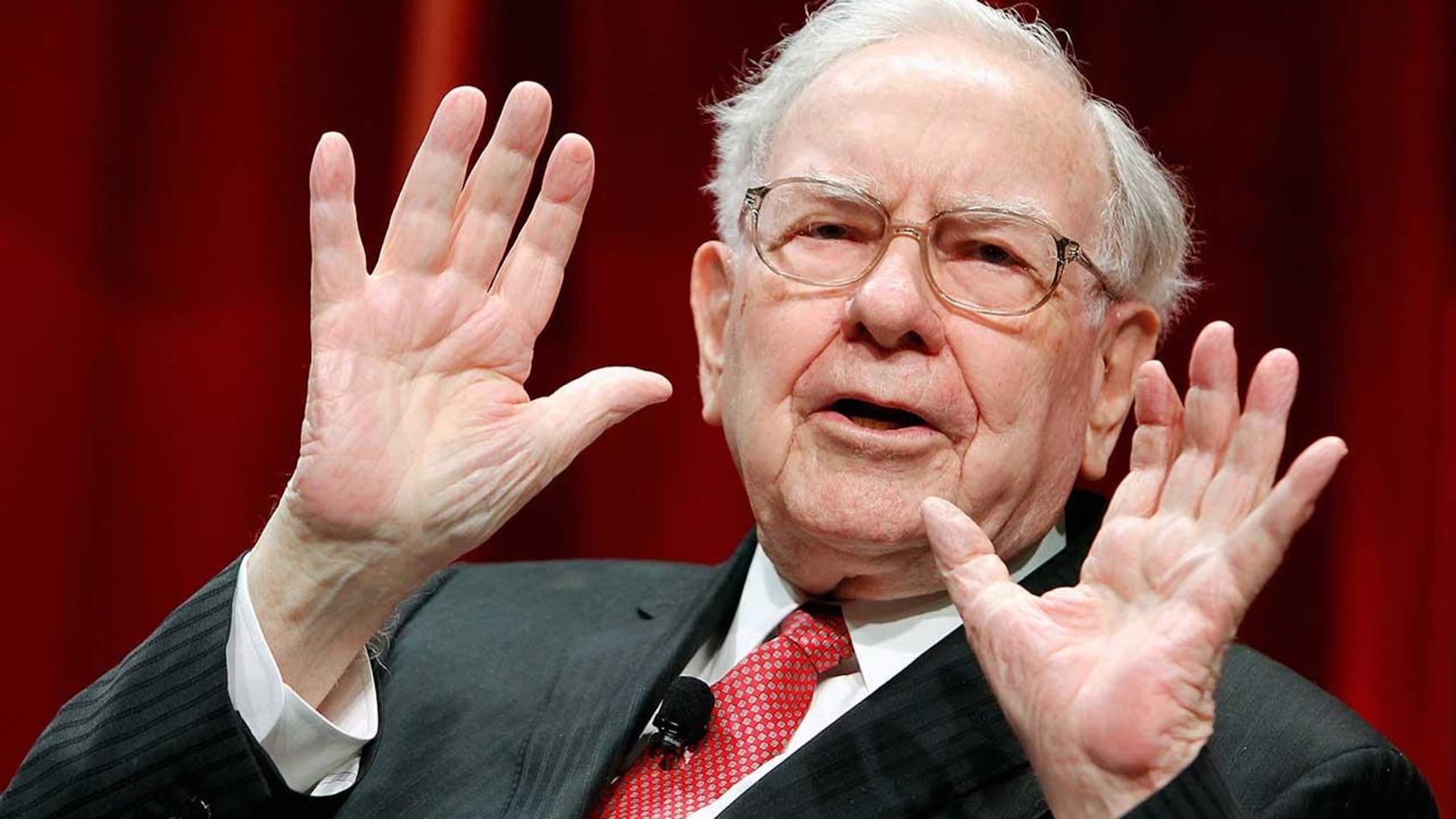
Berkshire Hathaway (BRK.B) was once again a net seller of stocks in its most recent quarter. But if you think Warren Buffett, who will step down as CEO at the end of 2025, has caught the "AI is a bubble" bug, think again.
The Oracle of Omaha has been easing off equities and hoarding cash for quite a while. Indeed, over the past three years, Berkshire was a net seller of stocks to the tune of $190 billion. Also noteworthy is that Berkshire hasn't engaged in stock buybacks since May 2024.
As a result, Buffett is running a sort of "barbell" portfolio. Berkshire, with a market cap of more than $1 trillion, holds $280 billion in stocks and a whopping $380 billion in cash.
Berkshire's cash pile has been boosted by comparatively high short-term interest rates, as well from pruning its portfolio. Buffett once again pared BRK.B's stakes in major long-term holdings such as Apple (AAPL), Bank of America (BAC) in the most recent quarter.
The Apple sales are particularly noteworthy. Not too long ago, the iPhone maker accounted for roughly 40% of Berkshire U.S. equity portfolio. Today, it's closer to 23%.
For some folks, these are highly disquieting developments. When one of the greatest investors of all time is selling massive amounts of stock in some of his favorite names, it's understandable if people believe they would feel better about it if only they knew why.
First things first, however. Buffett took pains to explain to Berkshire shareholders at their annual meeting in May that the iPhone maker is still, er, the Apple of his eye. (It would have been embarrassing not to, considering Apple CEO Tim Cook attended the event in person.)
If Buffett has a problem with AAPL, it's that the value of Berkshire's stake has grown tremendously at a time when he expects corporate tax rates to rise, probably sometime in the not-too-distant future.
As Buffett told the Berkshire faithful in August 2024: "If I'm looking at a 21% rate this year and then we're [paying] a lot higher percentage later on, I don't think you'll actually mind the fact later on that we sold a little Apple this year."
Perhaps the same thinking informed Berkshire's paring of its stake in Bank of America. The fact that owning more than 10% of a publicly traded company's shares triggers disclosure requirements large shareholders would rather avoid for as long as possible is another reason to bring one's ownership below a regulatory threshold.
What we do know so far is that Buffett has been a net seller of equities for 12 consecutive quarters. Share repurchases have ground to a halt too. For context, Berkshire repurchased more than $9 billion worth of BRK.B stock in all of 2023.
This is not the sort of behavior one typically sees in someone with excessive confidence in equity prices.
So what gives?
Buffett stocks sales: an expert's take
If Warren Buffett is selling stocks and not buying back his own, that might tell us something about the Oracle of Omaha's view of the market, writes Nicholas Colas, co-founder with Jessica Rabe of DataTrek Research.
As a multi-decade market watcher and market participant, Colas posits three potential explanations for Buffett's "unusual activity."
The first explanation is that Buffett is calling a top. "Buffett sees stocks as overvalued, including his own, and therefore susceptible to a deep correction or outright bear market," Colas writes.
It is indeed interesting that Berkshire now holds $380 billion in cash. "That’s a lot of firepower if markets see a sustained drop," notes Colas. "While Berkshire is not especially expensive, its multiple may be worrisome to a value investor."
And don't forget that Buffett likes nothing more than to be greedy when others are fearful. If stocks crash, Berkshire will be able to go shopping for assets at deep discount prices.
M&A on tap
Then there's the possibility that Berkshire is amassing cash to effect a truly whale-sized deal. "Berkshire may have identified one or more large acquisitions and is raising capital for those purchases," Colas writes. He adds that BRK.B's $380 billion in cash would comfortably buy all of Coca-Cola (KO) or Goldman Sachs (GS).
Colas emphasizes that the latter two are only examples, not risk arbitrage trading ideas. They do make sense, however. Coca-Cola, a Buy-rated Dow Jones stock, has been a core Berkshire holding for four decades. As for Goldman Sachs, Berkshire has been a major shareholder in the past. (Recall that Buffett gave GS an injection of capital during the Great Financial Crisis.)
Passing the baton
Lastly, Colas postulates that it's possible Buffett is simply preparing the company for his departure as CEO. (He will stay on as chairman.)
Perhaps Buffett "wants to clear the decks for his successors to remake Berkshire's portfolio and rethink the company's stock repurchase program," Colas says. "At 95 years old, he has certainly earned the right to ride off into the sunset as one of the greatest investors of all time."
The bottom line
The most important takeaway from Colas' note is the following: "We wouldn't read too much into Buffett's latest moves since there is more than one logical explanation for his actions."
Let's pause on that last sentence for a moment, because it's important. As folks have noted before, if copying Warren Buffett's buys and sells was all it took to become the next Warren Buffett, there would be a lot more Warren Buffetts in the world.
And yet, as far as we know, there is still only one.







